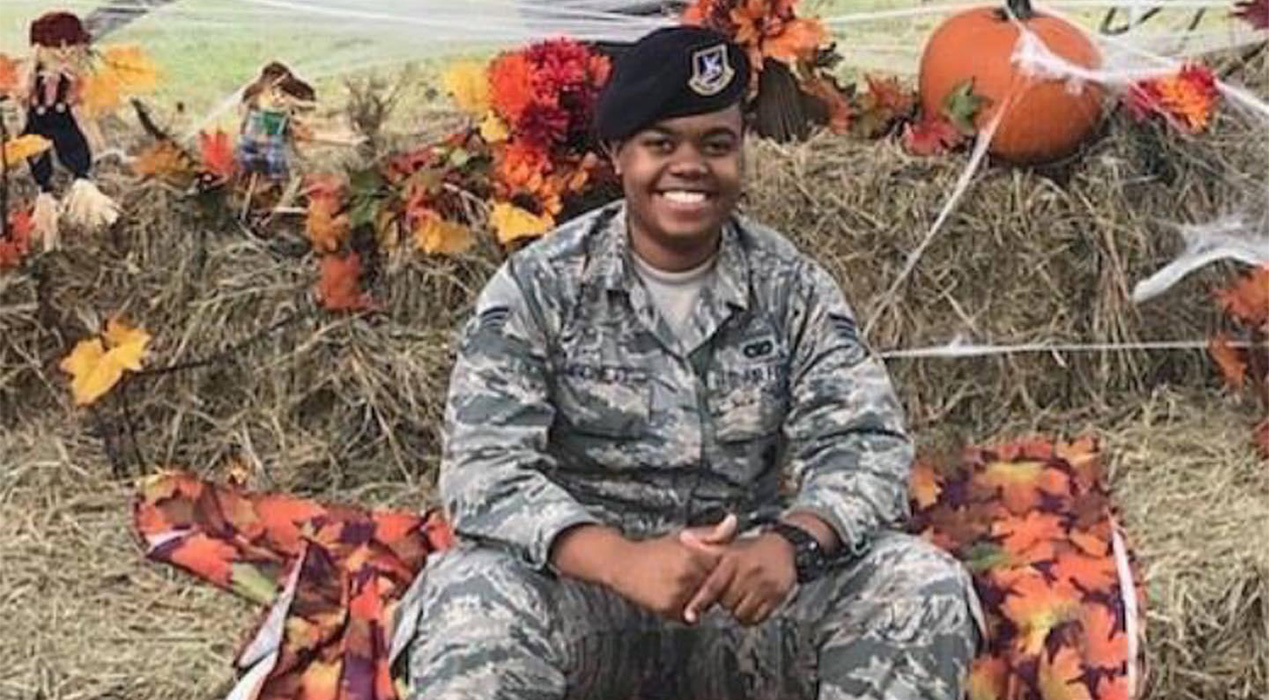Air Force Veteran Asia Hodnett Discusses PTSD and Healing with Therapy and Creative Arts
(November 11, 2025) - Asia Hodnett is a Communications and Media Studies major at Clayton State University, currently a senior with an anticipated graduation date of May 2026. She came to Clayton State after receiving an associate degree in Film from Perimeter College at Georgia State University.

Asia recently participated in the College of Business Innovation Week event, the S.T.E.M. Social Innovation Challenge, where students pitched their businesses to judges who awarded cash prizes to the top three winners. Her business plan was to launch the Hazy Haven digital media platform, which will expand to an interactive program that offers creative arts therapy, marketed to military veterans who have Post Traumatic Stress Disorder (PTSD) and other mental health and stress-related life challenges.
Dr. Shontelle Thrash, the Director of Theater and Professor of Theatre and Communication at Clayton State, encouraged Asia to enter the College of Business competition. Asia previously worked on a theater production with Dr. Thrash called Crossroads. As part of that production, Dr. Thrash introduced Asia to therapeutic exercises that would later influence the development of the Hazy Haven platform.
Asia served in the United States Air Force from 2012 to 2016. She was stationed at Kirtland Air Force Base in Albuquerque, New Mexico. She completed her career in the Air Force Reserves from 2016 to 2020, serving at Dobbins Air Reserve Base in Marietta, Georgia. After participating in her high school marching band, Asia became interested in pursuing a music degree in college and saw military service as a way to fund it. Asia also had many family members who had served in the military, including her father, who advised her to join either the Air Force or the Navy.
Asia described moving to New Mexico at the age of 18 as “a huge culture shock.” Even the landscape was a dramatic change from growing up in Georgia. When she arrived in New Mexico, she visited her uncle, who lived nearby. She said to him, “What is that big rock? And he's like, Oh yeah, that's the Sandia Mountains. I'm like, wait a minute. There's a mountain range in the desert. Where am I? So, it was definitely different. It was really quiet. I was very uncomfortable with how quiet it was because where I grew up, I was next to a fire station with a police station right around the corner, so I am used to noise and activity sounds at night.”
When she started at Kirtland, she held the rank of E-3 due to her ROTC experience in high school. She eventually rose to the rank of senior airman and served in the security forces, also known as the military police. Still, she said she didn’t perform law enforcement functions. She patrolled the base in a Humvee, mostly in gear, including a gas mask. She described the job as feeling “like a deployed environment.”
During her time in the military, Asia said she developed PTSD. “At Kirtland, you were isolated in the desert, and there was no room for anything as far as personal time. I didn't see my family for the first two years. I had balance at one point where I was still learning music and going to school, but then they started cutting back on that for the sake of the mission.”
While on duty at Kirtland, Asia said, “They had you working 14 to 16 hours a day. During my first year there, we started getting reports of mental health crises and suicides.” Eventually, she started responding to calls from people she knew in crisis, attempting suicide, and it began to have an impact on her mental health. She had been holding all that emotion inside and not having someone to talk to about the trauma she was witnessing. Eventually, she realized “I kept having flashbacks and was shown time and time again that my mental health didn't matter. That's when I realized I couldn't stay.” Asia decided to leave full-time service, returned to Georgia, and joined the Reserves.
Asia faced another dramatic change and culture shock when she moved to the reserves back in Georgia. She said, “It was a very rough transition because again, just how different it was. With the reserves, they're only in uniform one weekend a month. In contrast, I come from an environment where I was literally in uniform every day; even in my off time, I had to respond to something. At Kirtland, it was a mission-driven environment; there wasn't room for griping or complaining. Whereas with my Reserves unit, it was just very loose.”
After leaving the service, Asia learned of another Air Force friend in crisis, which became her breaking point. She was eventually placed in a hospital psychiatric unit because of a mental health crisis due to PTSD. Asia explained that “after I was released from the unit, I went through different treatment programs with the VA, which helped a lot as far as dealing with the mental health side.”
Asia added, “But at the same time, I didn't know what to do with my life, period. When I returned home, I took a powerful class at Georgia State. I was exposed to creative arts, including poetry. So, for me, I'm grateful for the treatment plans that helped with the mental health side, but being a creative person again, that's really what helped me a lot.”
